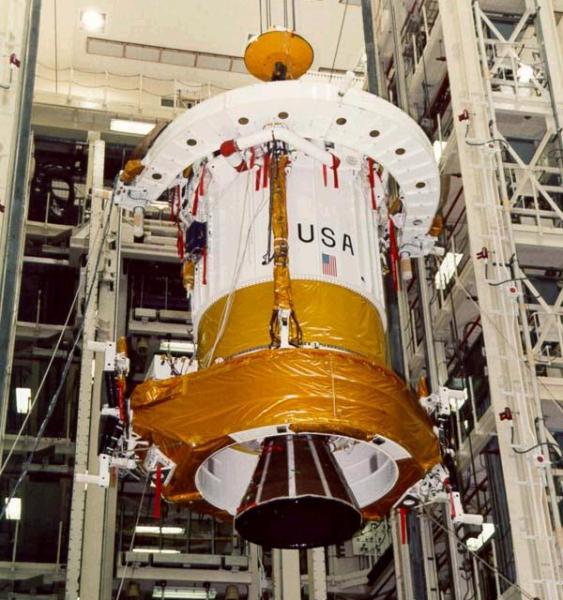Boeing SSB-7 IUS
To place geostationary satellites into orbit a multi-stage launch vehicle is required which, first, places the satellite into a low-Earth orbit, from where a separate stage flies the satellite into the geostationary orbit.
 |
| Photo: Boeing |
| IUS (SSB-7A) |
The Boeing Inertial Upper Stage (IUS), which carried the military designation SSB-7A (probably only for the military flights), was developed to fulfill this function with the Space Shuttle, Titan 34D and Titan IV launch vehicles.
| Stage | Length | Diameter | Engine | Fuel | Thrust |
|---|---|---|---|---|---|
| 1 | 3.50 m | 2.30 m | 1 United Tech. Orbus-21 | solid | 173,500 N |
| 2 | 3.50 m | 2.30 m | 1 United Tech. Orbus 6E | solid | 74,730 N |
Specifications for IUS
It is a two stage vehicle which is capable to transfer a payload of 2750 kg from low-Earth orbit to geostationary orbit.
| Stage | Length | Diameter | Engine | Fuel | Thrust |
|---|---|---|---|---|---|
| 1 | 2.10 m | 1.60 m | 1 United Tech. Orbus 6 | solid | 78,416 N |
Specifications for IUS-2
A single stage version, known as IUS-2 was also used with the Titan 34D launch vehicle.
The IUS was used for the first time on 30 October 1982 and remains in use. As at 31 December 2002 there had been 25 flights of which one failed.
Back to Directory of U.S. Military Rockets and Missiles, Appendix 3
Last Updated: 16 March 2003